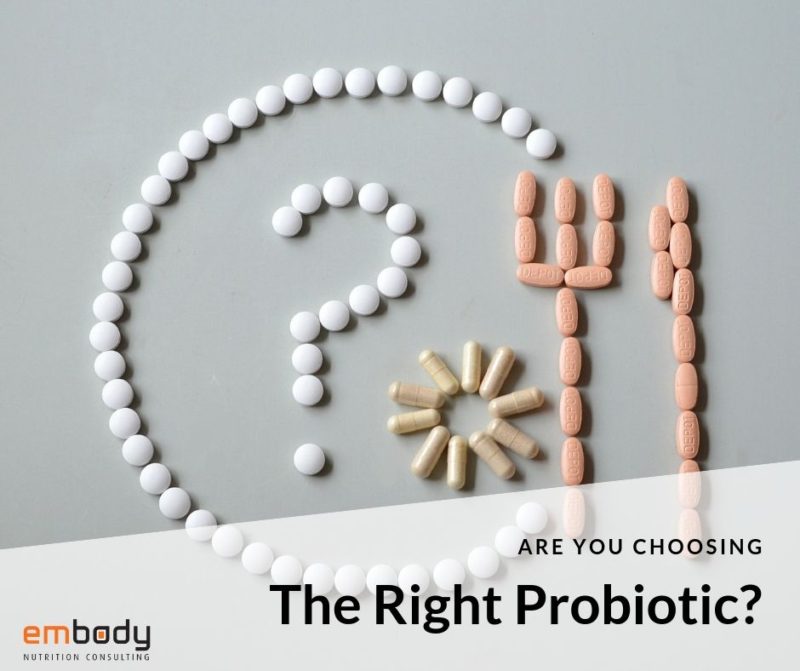Probiotics have been around for centuries, but they are now exploding in popularity. There isn’t any strong evidence that probiotics confer a significant benefit for healthy people, but there are studies showing certain strains can help with certain health conditions.
What exactly is a probiotic?
Many of us might already know that probiotics are beneficial bacteria that live in our gut, and can be taken via food or supplements. But literature today defines probiotics via a specific set of characteristics.
Probiotics must fulfil the following 3 features:
- Live microbes
- Administered in adequate amounts
- Proven to confer a health benefit to the host
Just because a food or supplement contains ‘live cultures,’ doesn’t mean it contains probiotics. A great example of this is the many fermented food products available. These may contain live cultures, but what these are and whether they make it to the lower gut alive, or have a benefit to us is relatively unknown.
Probiotics are differentiated at 3 levels:
- Genus e.g. Bifidobacterium
- Species e.g. Animalis
- Strain e.g. BB-12
There are many types of probiotics currently on the market, with organisms belonging to the Lactobacillus and Bifidobacterium genus being the most popular.
The effect of probiotics are strain specific. A really great example of this is the well-known E. coli bacteria. One strain of E coli (the species) causes diarrhoea, kidney failure and death… whilst another E.coli strain reduces gut inflammation and helps with constipation.
So, when choosing a probiotic we need to consider the strain, not just the genus or species.
What are the health benefits of probiotics?
The research into probiotics has come a long way, but has a long way to go. Despite this, there’s high-level evidence for probiotics impacting some conditions. If you’re considering a probiotic, think of it as a medication. You wouldn’t just take any medication to treat a specific problem. Like medications, the research shows different strains help with different problems.
See below for some situations in which a probiotic might help, and examples of organisms shown to have an effect.
Probiotics may play a role in:
- Antibiotic therapy to reduce antibiotic-associated diarrhoea (strongest evidence for S boulardii taken at a dose of 10 million CFU 2 x day during and for 1 week post antibiotics).
- Preventing travellers’ diarrhoea (e.g. S boulardii, as above).
- Preventing URTI and reducing duration of URTI (various, including L casei – other Lactobacillus and Bifidobacteria species).
- Irritable bowel syndrome, including diarrhoea and constipation (various, including mix strain VSL#3, B infantis).
There’s emerging evidence probiotics may help with a whole host of other conditions. Most often a dose will range from 100million to 50billion or more CFU’s (colony forming units).
What about fermented food?
Fermentation involves bacteria or yeast, to make products such as kombucha, kefir, sauerkraut and yoghurt. These products generally contain a variety of live cultures, which are believed to be beneficial for the community of bacteria living in our gut. Though further research needs to be done, fermented foods often provide health benefits other than live cultures alone. Thus, including them in your diet, with potential for a gut-health benefit is well worth it! But… if you’re looking to treat a specific condition, supplementation with a probiotic may still be worth considering.

